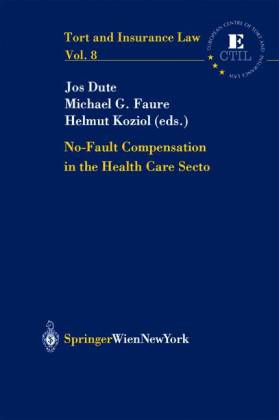
Bedankt voor het vertrouwen het afgelopen jaar! Om jou te bedanken bieden we GRATIS verzending (in België) aan op alles gedurende de hele maand januari.
- Afhalen na 1 uur in een winkel met voorraad
- In januari gratis thuislevering in België
- Ruim aanbod met 7 miljoen producten
Bedankt voor het vertrouwen het afgelopen jaar! Om jou te bedanken bieden we GRATIS verzending (in België) aan op alles gedurende de hele maand januari.
- Afhalen na 1 uur in een winkel met voorraad
- In januari gratis thuislevering in België
- Ruim aanbod met 7 miljoen producten
Zoeken
No Fault Compensation in the Health Care Sector
€ 137,45
+ 274 punten
Omschrijving
Liability of medical practitioners as well as hospitals has become increasingly important throughout the last decades. The number of claims as well as the amounts of damages have risen. Are mere modifications of the classical liability law sufficient to meet the needs of the 21st century's society? Is the introduction of a no-fault compensation model on the basis of the existence of insurance or funds the solution to the problem? This study provides an overview of the legal situations in various European countries and (because of its dissimilarity) New Zealand. Moreover the case law of these jurisdictions is analyzed by renowned tort law experts. A comparative survey highlights the discernible tendencies. Furthermore, the economic aspects of the liability systems in the health care area are presented. The reader finds information about the different ways in which contractual liability, liability based on fault, insurance and fund models are combined.
Specificaties
Betrokkenen
- Uitgeverij:
Inhoud
- Aantal bladzijden:
- 492
- Taal:
- Engels
- Reeks:
- Reeksnummer:
- nr. 8
Eigenschappen
- Productcode (EAN):
- 9783704658210
- Uitvoering:
- Paperback
- Afmetingen:
- 235
- Gewicht:
- 750 g

Alleen bij Standaard Boekhandel
+ 274 punten op je klantenkaart van Standaard Boekhandel
Beoordelingen
We publiceren alleen reviews die voldoen aan de voorwaarden voor reviews. Bekijk onze voorwaarden voor reviews.








